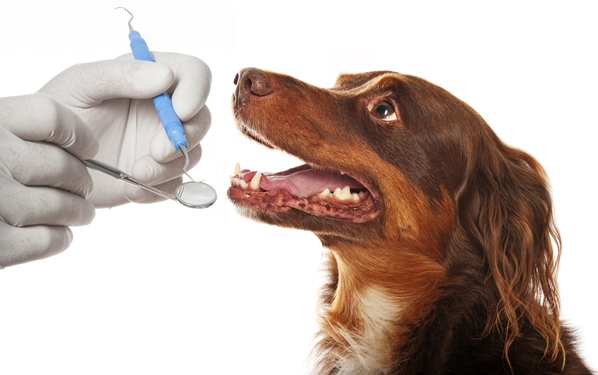When was the last time you had your pet’s teeth cleaned? According to the AVMA, pets who have never had a teeth cleaning have signs of dental disease by the time they are three years old. For that reason, North Jersey Veterinary Hospital recommends that all pets have a yearly dental cleaning and oral examination.
Dogs and cats are prone to developing the same types of dental diseases and problems as humans, including gingivitis, periodontal disease, tooth decay, staining and cavities. The process of dental decay and disease starts every time your pet eats. When your pet eats, food particles get on their teeth and gums. This fuels the bacteria in your pet’s mouth, causing an acid attack on the enamel of their teeth and creating a sticky, clear substance called plaque. If the plaque is left on teeth, it hardens into tartar. When plaque and tartar are left on your pet’s teeth for an extended period of time, it can lead to gingivitis, periodontal disease, cavities and oral infections

When it comes to detecting potential oral health problems in pets, owners must be vigilant in noticing changes in behavior. This is because pets often do not act like they are in pain until the pain is severe. If you notice any of the signs below, it is important that you contact us to schedule a dental checkup, teeth cleaning and gum disease treatment.
Untreated periodontal disease in dogs and cats can lead to dangerous infections, like abscesses and blood infections. Advanced dental disease may also affect your pet’s heart, liver and kidneys. In order to avoid these potentially life-threatening conditions, it is important to keep your pet’s teeth clean with a combination of at-home care and regular veterinary teeth cleanings.
North Jersey Veterinary Hospital recommends that all dogs and cats receive their first dental checkup shortly after they are weaned and at least once a year for every year of their lives. After a complete physical examination the veterinarian will discuss your individual pets dental needs. If a dental is recommended this is an anesthetic procedure that includes radiographs of all teeth, cleaning of all plaque from your pet’s teeth and below the gum line, and extractions of any diseased teeth if needed.